We will stay firmly rooted in Chinese culture. We will collect and refine the defining symbols and best elements of Chinese culture and showcase them to the world. We will accelerate the development of China’s discourse and narrative systems, better tell China’s stories, make China’s voice heard, and present a China that is credible, appealing, and respectable.
為世界提供更多啟迪和機遇
——海外人士盛讚習近平引領新時代中國進一步全面深化改革
發佈時間:2024-07-18 09:05:20 | 來源:新華網 | 作者: | 責任編輯:曹川川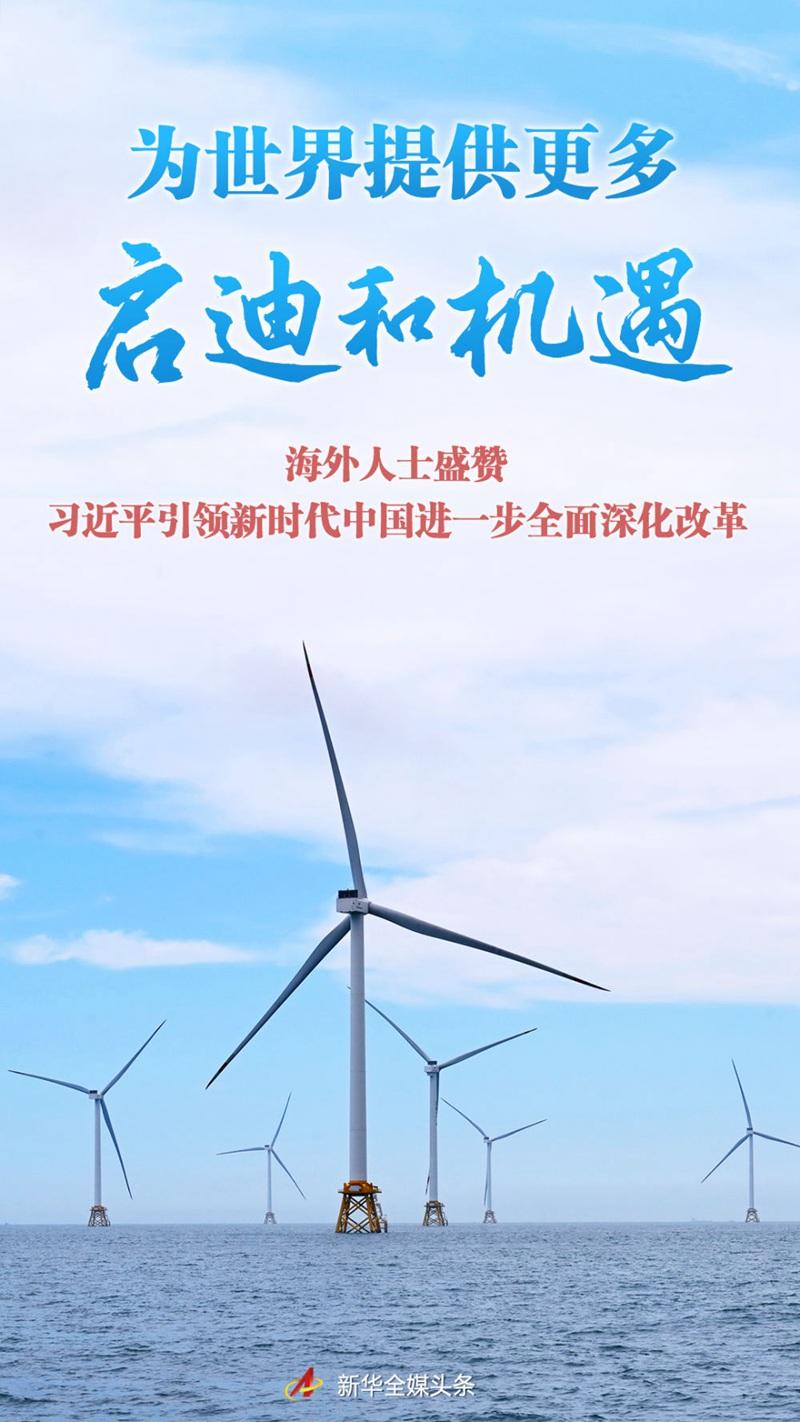
“中國的改革促成了當代人類歷史上最偉大的經濟轉型,甚至也堪稱是迄今全部人類歷史上最偉大的經濟轉型。”英國學者馬丁·雅克説。
“要了解中國下一階段的全面深化改革,可以從習近平對中國的思考入手。”美國庫恩基金會主席羅伯特·勞倫斯·庫恩説。
改革開放是中國和世界共同發展進步的偉大歷程。海外人士普遍認同習近平關於改革開放的重要論述——“中國進行改革開放,順應了中國人民要發展、要創新、要美好生活的歷史要求,契合了世界各國人民要發展、要合作、要和平生活的時代潮流。”“改革開放這場中國的第二次革命,不僅深刻改變了中國,也深刻影響了世界!”
中共二十屆三中全會召開,世界矚望中國進一步全面深化改革、推進中國式現代化給各國共同發展和人類文明進步帶來更多機遇,為建設和平、穩定、繁榮、更加美好的世界提供更多啟迪。
“展現出強大勇氣和領導力”
“容易的、皆大歡喜的改革已經完成了,好吃的肉都吃掉了,剩下的都是難啃的硬骨頭。這就要求我們膽子要大、步子要穩。”習近平主席在接受俄羅斯電視臺專訪時的這一論述給南韓全球戰略合作研究院院長黃載皓留下深刻印象。他説,改革是由問題倒逼産生,又在不斷解決問題中得以深化。面對新型矛盾、改革難題,習近平設定正確的前進方向,同時展現出堅定信心。
海外人士評價,在中國全面深化改革的征程上,習近平主席勇毅擔當高舉改革大旗,科學謀劃為改革掌舵領航,篤行實幹成就中國式現代化新路。“習近平的遠見很好地應對了挑戰。在改革道路上,他帶領中國邁向發展新階段。”尼日利亞中國研究中心主任查爾斯·奧努納伊朱説。
十年多來,習近平總書記親自挂帥中央全面深化改革委員會(領導小組),主持召開72次中央深改領導小組和中央深改委會議,部署了一系列重大改革事項,指引各方面出臺3000多項改革方案,覆蓋經濟、政治、文化、社會、生態文明、黨的建設、國防和軍隊等各個領域。
迦納智庫非中政策諮詢中心執行主任保羅·弗林蓬表示,“習近平引領的改革涵蓋領域廣泛、內容深刻,及時、有力回應了中國在新時代面臨的內外部挑戰”。
“習近平是通過實幹來領導的。”約旦侯賽因·本·塔拉勒大學教授哈桑·達賈説,習近平親自領銜、部署一系列重大改革事項,“他認真審閱重大改革方案的每一稿,甚至逐字逐句親筆修改”。這樣的實幹精神,令達賈欽佩。
十年多來,中國的改革在各個領域紮實推進、不斷突破,許多領域實現歷史性變革、系統性重塑、整體性重構。
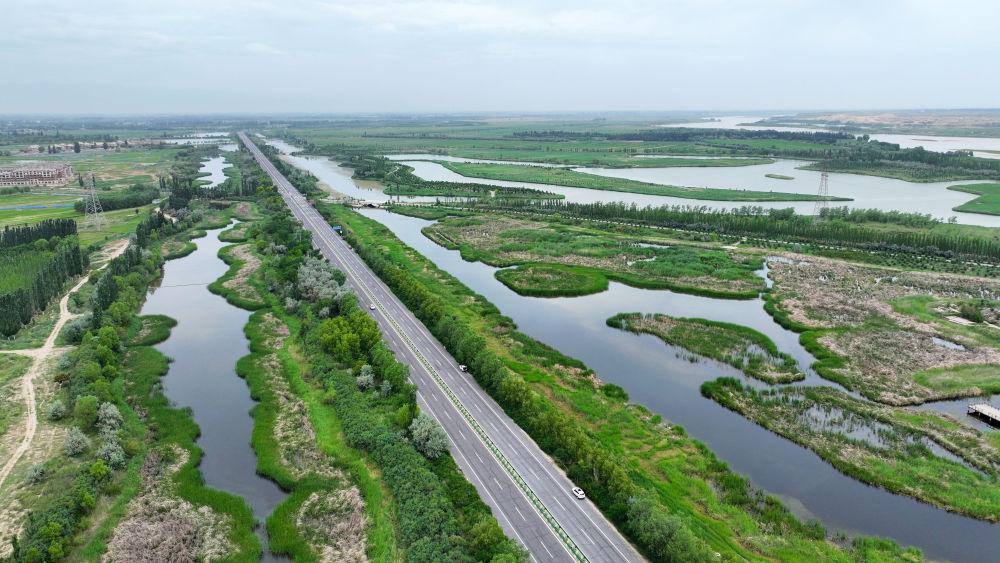
這是2024年6月13日拍攝的黃河寧夏段濱河大道(無人機照片)。近年來,寧夏努力建設黃河流域生態保護和高品質發展先行區,全力打好黃河保護持久戰。新華社記者 王鵬 攝
聯合國前副秘書長埃裏克·索爾海姆高度評價中國在推動生態環境治理和經濟協調發展方面取得的成就:“中國已成為全球綠色發展的中堅,其他任何國家想在沒有中國參與的情況下實現綠色發展,都將付出更多時間、更大代價。”
俄羅斯國家杜馬(議會下院)國際事務委員會第一副主席德米特裏·諾維科夫長期深入研究中國共産黨執政理念與實踐。他説,每次訪華都給他留下深刻印象,新的城市街區不斷發展,工業園區加快建設,越來越多高速交通線路正在鋪設。“習近平擔任黨和國家最高領導人以來,中國在全面深化改革的旗幟下不斷前進。”
達賈表示,過去短短幾年間,中國民眾的生活水準得到明顯改善,這正是深化改革的成果。“習近平展現出強大的勇氣和領導力,堅決應對挑戰並在改革道路上前進。”
“為世界前進提供了新的思路,帶來了新的啟迪”
“習近平具有戰略眼光,他為全面深化改革構建了一套獨特而科學的方法論,這是改革成功的關鍵。”新加坡時政評論員翁德生説。
海外人士認為,中國的改革舉措和現代化發展道路為世界,尤其是廣大發展中國家提供了啟示和範例,其中蘊含的理念和智慧值得各國改革者學習借鑒。
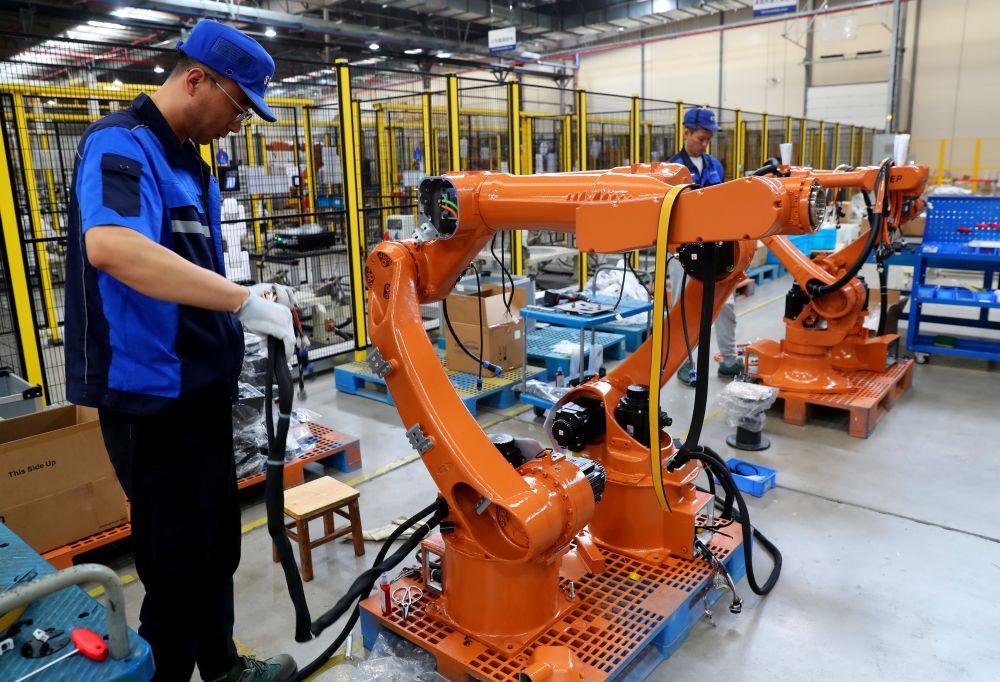
工作人員在上海新時達機器人有限公司位於嘉定的智慧工廠內忙碌(2024年5月23日攝)。新華社記者 龔兵 攝
索爾海姆説,習近平主席的智慧體現在對中國發展全局的把握上。從推動生態治理到倡導高品質發展,從鐵腕反腐到脫貧攻堅,再到提出推動科技創新和發展新質生産力,“這些思想為驅動中國發展提供了不竭動力”。
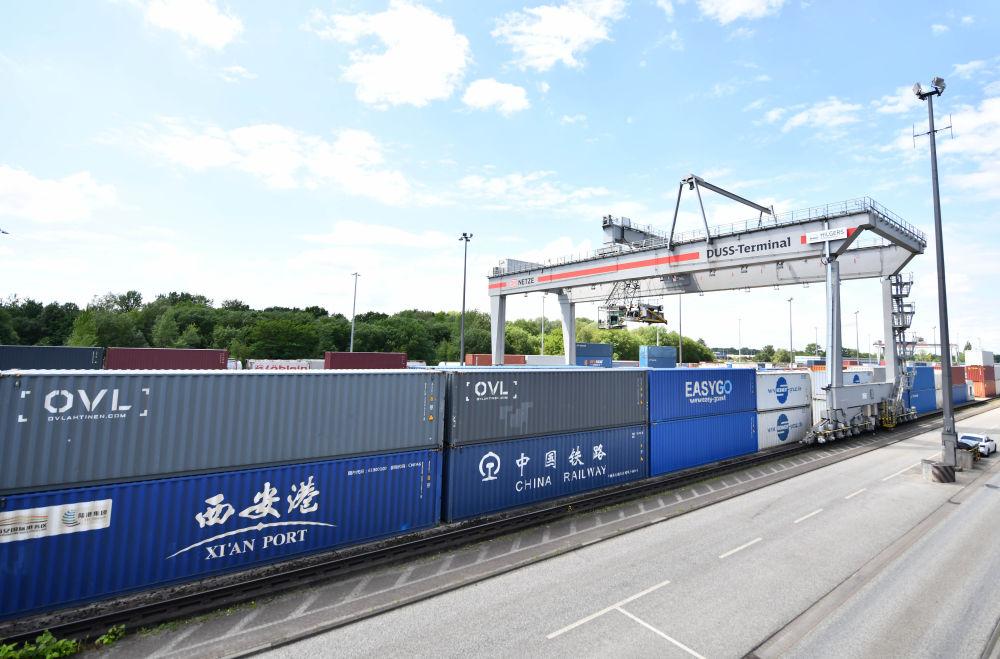
這是2024年5月27日拍攝的德國漢堡-比爾韋爾德DUSS貨運場站。新華社記者 任鵬飛 攝
德國聯邦經濟發展和對外貿易協會主席米夏埃爾·舒曼非常關注新質生産力這一概念。在他看來,這涉及人工智慧和數字基礎設施,核心是以此來改善人們的生活。“我們正在深入研究,觀察中國式現代化將如何繼續發展,以及西方可以從中學到什麼。”
古巴哈瓦那大學國際經濟研究中心資深研究員路易斯·費爾南德斯認為,習近平主席闡述和提出的改革理念是正確的,因為這些理念堅持以人民為中心,並且基於對全球經濟整體環境和國際政治經濟關係複雜性的科學分析。
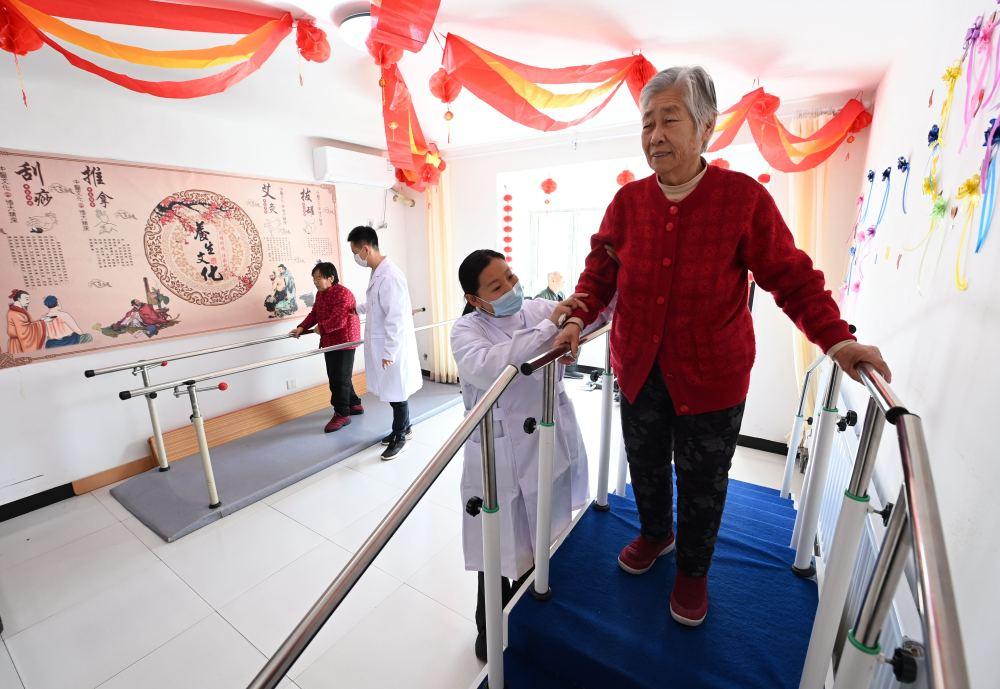
在河北省香河縣安平鎮運河新村醫養中心,老年人在進行康復訓練(2024年2月29日攝)。新華社記者 王曉 攝
“抓改革、促發展,歸根到底就是為了讓人民過上更好的日子”“中國式現代化,民生為大”“老百姓關心什麼、期盼什麼,改革就要抓住什麼、推進什麼,通過改革給人民群眾帶來更多獲得感”……海外人士尤其注意到,在引領新時代中國全面深化改革過程中,人民始終在習近平主席心中居於最重要的位置。
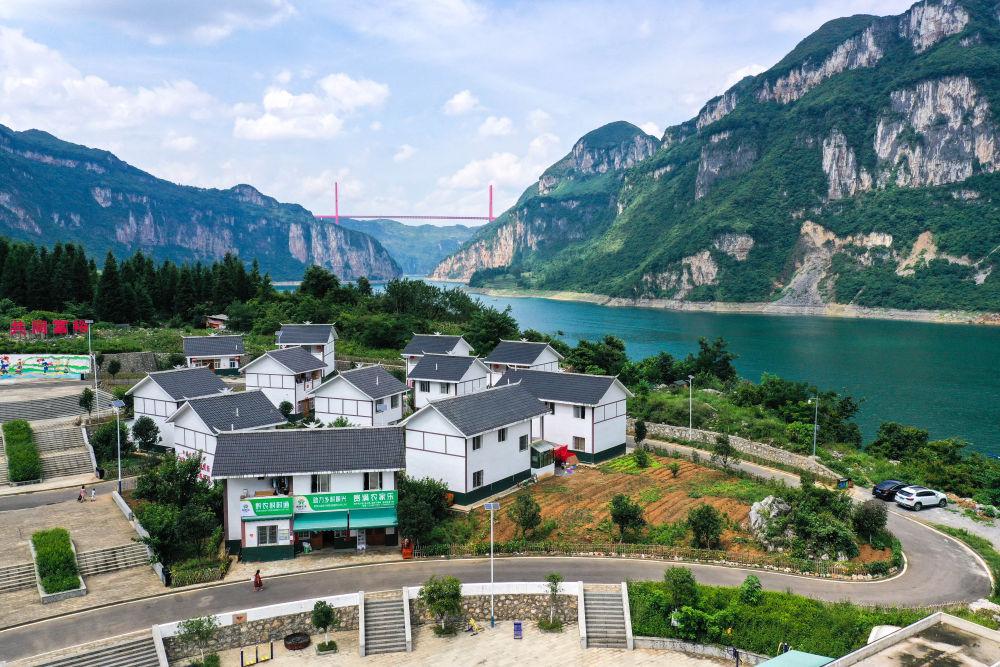
這是貴州省黔西市新仁苗族鄉化屋村麻窩寨易地搬遷集中安置點(2021年7月24日攝,無人機照片)。新華社記者 楊文斌 攝
坦尚尼亞達累斯薩拉姆大學中國研究中心主任漢弗萊·莫西表達了對習近平主席“為了人民無私奉獻”的感動與欽佩。他説:“習近平主席始終堅持‘以人民為中心’,推動一系列改革措施,旨在提升人民生活水準,改善民生。從精準扶貧到全面小康,從教育改革到醫療保障,他所指引推動的政策切實回應了人民的需求,展現了對人民的深厚情懷和責任擔當。”
“以人民為中心,體現在公平正義的制度安排上,體現在真抓實幹的務實作風上。”柬埔寨柬中關係發展學會會長謝莫尼勒説,這讓人民既成為改革的實踐者,又成為改革的受益者,打通了中國快速發展的脈絡,推動改革開放不斷走向深入。
“習近平懂得用心、用思想來回應人民需求。他發起的改革是成功的,這些改革符合人民的利益,因而獲得人民的認同。”諾維科夫説,中國的領導者“牢記來自人民、為人民服務”,這是中國與西方國家的一個重要區別。
“習近平心中的人民,不僅是中國人民,也是世界人民。”中國改革友誼獎章獲得者、英國48家集團俱樂部名譽主席斯蒂芬·佩裏感慨,習近平深刻認識和理解辯證法與矛盾論,並將馬克思主義與中國實際相結合,找到了適合中國發展的道路。在世界迷失的時刻,這條道路為世界前進提供了新的思路,帶來了新的啟迪。
十年多來,伴隨著全面深化改革在廣度和深度上不斷拓展,中國特色社會主義制度更加成熟,國家治理體系和治理能力現代化水準不斷提高,中國式現代化展現出光明前景。
斯里蘭卡國際問題專家亞西魯·拉納拉賈説:“在習近平領導下,中國式現代化在減貧、科技創新以及綠色可持續發展等領域都為世界創造了新範式。”智利前駐華大使費爾南多·雷耶斯·馬塔表示,“中國式現代化是非常深刻、有力的概念,它改變了現代化的範式”,在全球南方國家中引發了廣泛迴響。
“為推動解決人類重大問題提供願景和規劃”
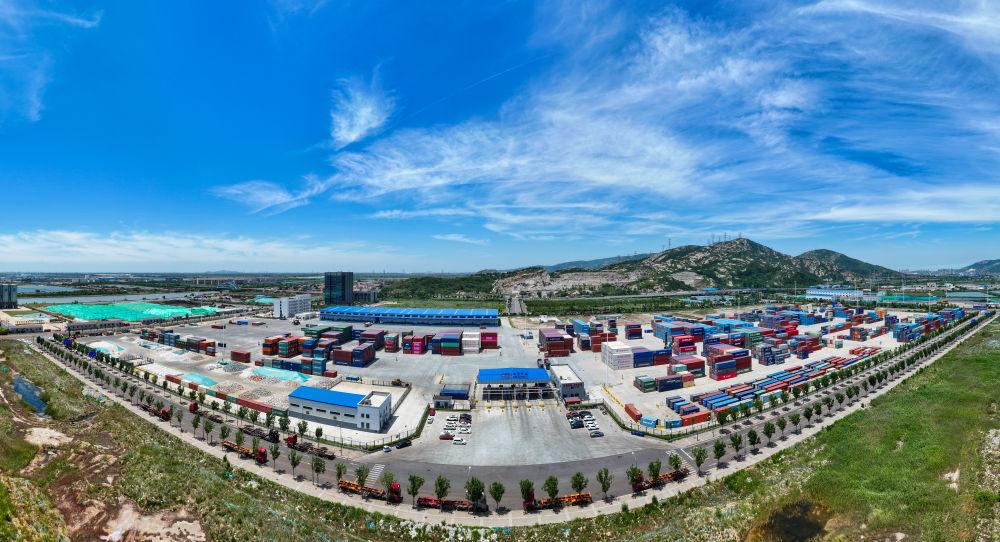
2024年6月26日拍攝的位於江蘇省連雲港市連雲區的上合組織(連雲港)國際物流園內的中國外運集裝箱場站(無人機照片)。上合組織(連雲港)國際物流園是連雲港建設“一帶一路”交匯點強支點和上合組織國家出海基地的重要平臺載體。新華社記者 季春鵬 攝
“啟運!”7月初,習近平主席訪問哈薩克期間,同哈總統托卡耶夫以視頻方式共同出席了中歐跨裏海直達快運開通儀式。11年前,正是在哈薩克,習近平主席首次提出共建“絲綢之路經濟帶”倡議。如今,已有150多個國家、30多個國際組織簽署共建“一帶一路”合作文件。
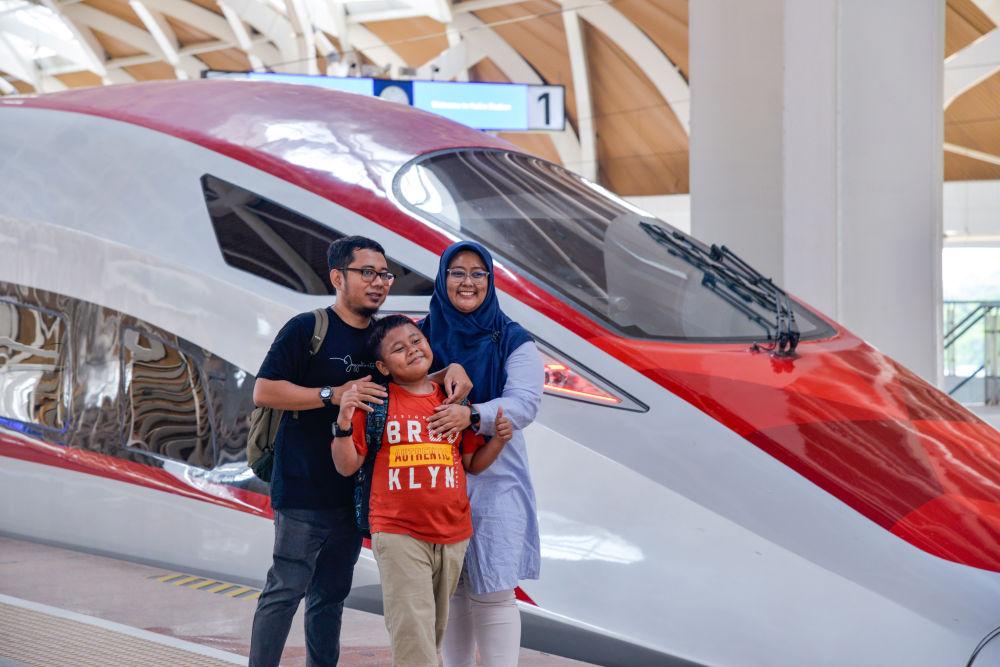
2024年4月17日,在印度尼西亞雅加達哈利姆站站臺,乘客和一列雅萬高鐵高速動車組合影。新華社記者 徐欽 攝
印度尼西亞人民協商會議主席班邦·蘇薩蒂約説,習近平主席提出共建“一帶一路”倡議,將世界不同地區通過供應鏈連接起來,這樣的構想令人嘆為觀止。

這是中哈合作的哈薩克札納塔斯100兆瓦風電項目(2022年9月13日攝)。新華社發(德米特裏·瓦西連科 攝)
海外人士認為,習近平主席提出推動構建人類命運共同體理念,提出共建“一帶一路”、全球發展倡議、全球安全倡議、全球文明倡議、共商共建共用的全球治理觀等一系列重要倡議和理念,為積極應對全球性挑戰貢獻了中國智慧、提供了中國方案,為推動人類文明進步、創造人類文明新形態繪就了恢弘藍圖。
“習近平是一位為推動解決人類面臨的重大問題提供願景和規劃的大國領導人。”英國國際關係專家基思·貝內特這樣評價。
厄瓜多前總統吉列爾莫·拉索説,世界正面臨多重機遇與挑戰,只有增強“命運與共”意識,才能增進全人類共同福祉。中國提出全球發展倡議、全球安全倡議、全球文明倡議,展現了負責任大國的擔當,為各國進行平等對話、實現和平發展提供了啟迪。“習近平主席提出的構建人類命運共同體理念為世界探索自由與和平的發展道路指明瞭方向。”拉索説。
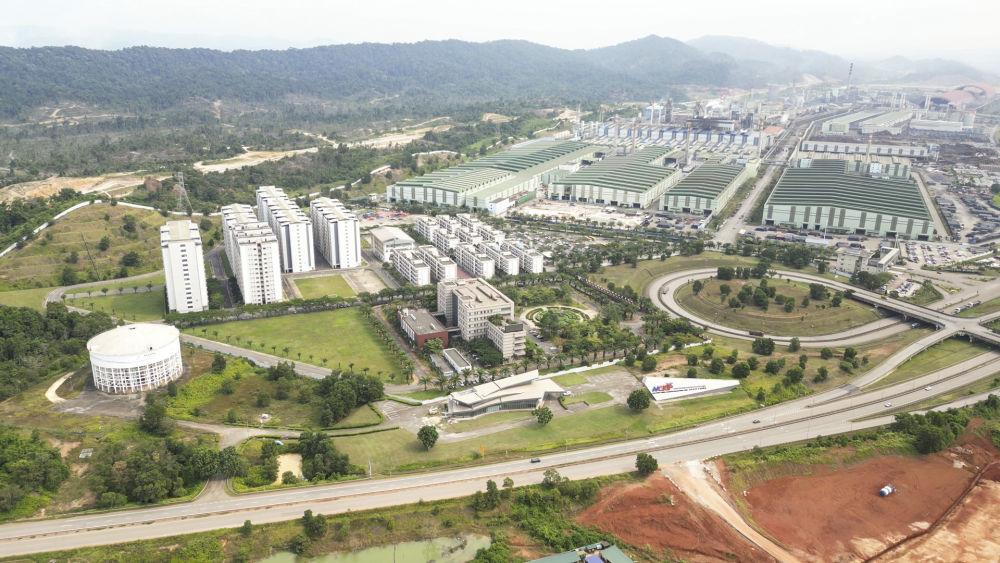
這是2024年6月13日在馬來西亞彭亨州拍攝的馬中關丹産業園(無人機照片)。新華社記者 程一恒 攝
馬來西亞新亞洲戰略研究中心理事長許慶琦説,二戰結束後,西方逐步建立並主導了全球治理體系,目的是維護西方自身利益。所有國家必須追隨西方,否則就會被西方視為對立面。相比之下,中國提出的構建人類命運共同體理念是包容的。“這一理念超越了國家層面,是從全人類的高度處理國際體系。”許慶琦説。
全球化概念首倡者之一的英國社會學家馬丁·阿爾布勞高度評價習近平主席提出的構建人類命運共同體理念以及為此進行的理論探索。他説,構建人類命運共同體理念融合了古老的中國智慧,全球的美好未來需要全世界人民共同努力,期待中國在這方面發揮帶頭作用。
Why global observers see Xi as a visionary leader committed to reform
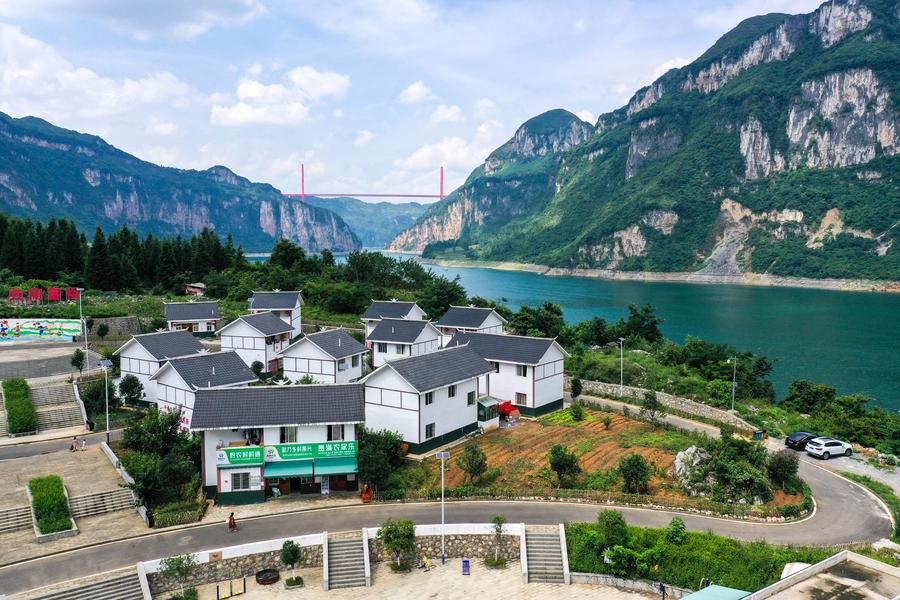
An aerial drone photo taken on July 24, 2021 shows a view of a relocation site for poverty alleviation at Huawu Village in Xinren Miao Township, Qianxi City, southwest China's Guizhou Province. (Xinhua/Yang Wenbin)
* Many overseas observers have noted that, under Chinese President Xi Jinping's leadership, China will continue to sail with reaffirmed commitment to reform and opening-up.
* In their interviews with Xinhua, overseas observers have regarded China's reform initiatives and its path of modernization as valuable lessons for the developing world.
"Today, the Chinese people can say with great pride that reform and opening-up, China's second revolution if you like, has not only profoundly changed the country but also greatly influenced the whole world," said Chinese President Xi Jinping at the opening ceremony of the Boao Forum for Asia annual conference in 2018.
This statement was made as China was commemorating the 40th anniversary of its reform and opening-up, which has long been described as a "crucial move" that has made China what it is.
As the Third Plenary Session of the 20th Communist Party of China (CPC) Central Committee is being held in Beijing from Monday to Thursday, observers are particularly keen to gain insights from Xi's perspective on deepening reforms.
Many overseas observers have noted that, under Xi's leadership, China will continue to sail with reaffirmed commitment to reform and opening-up.
ACT BOLDLY and PROGRESS STEADILY
Advancing reform in a country of 1.4 billion people is extremely challenging.
"It can be said that the easy part of the job has been done to the satisfaction of all. What is left are tough bones that are hard to chew. This requires us to act boldly and progress steadily," Xi said in an interview with foreign media in 2014.
Reform is driven by problems and deepens through solving these problems, said Hwang Jaeho, director of South Korea's Institute for Global Strategy and Cooperation.
Xi's statement on "acting boldly and progressing steadily" to tackle new problems in the process of reform "left a deep impression on me," said Hwang. He also noted that in that same interview with foreign media, Xi expressed "full confidence in the prospects for China's development."
Charles Onunaiju, director of the Center for China Studies in Nigeria, said that a visionary leader must have the foresight and insight to perceive the opportunities and the challenges to improve society.
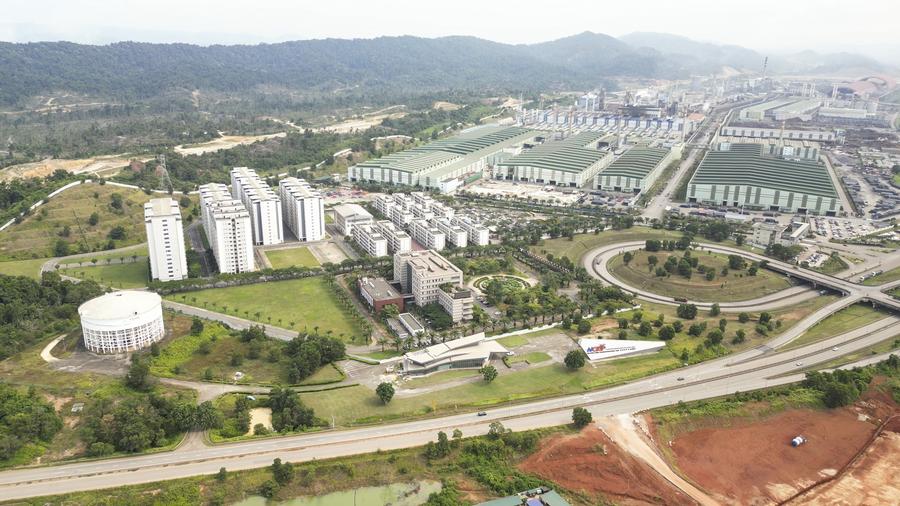
An aerial drone photo taken on June 13, 2024 shows the Malaysia-China Kuantan Industrial Park (MCKIP) in Pahang state of Malaysia. (Xinhua/Cheng Yiheng)
In this regard, he said, Xi not only seizes the opportunities presented by reforms but also adeptly manages the associated risks and challenges, taking necessary measures.
For over a decade, Xi has spearheaded over 3,000 reform plans across various sectors, including the economy, politics, culture, society, ecology, party building, national defense, and the military.
Paul Frimpong, executive director of the China-Africa Center for Policy and Advisory, noted that the reforms led by Xi have covered a wide range of fields, and have responded to the internal and external challenges facing China timely and effectively.
Over the past years, China's reform has made solid progress and continuous breakthroughs in various fields. Erik Solheim, co-chair of the Europe-Asia Center and former under-secretary-general of the United Nations, spoke highly of China's achievement on green development.
"China is now the core of global green development and an indispensable force in the global green transformation," said Solheim, noting that countries seeking green development without cooperating with China will "pay more time and cost."
CHINESE WISDOM, VALUABLE LESSONS
In their interviews with Xinhua, overseas observers have regarded China's reform initiatives and its path of modernization as valuable lessons for the developing world.
Since the 18th CPC National Congress, China's comprehensive deepening of reforms has advanced with a focus on the people's welfare. Xi has emphasized that the ultimate goal of reform is for the people's well-being, pledging to make people's priorities his own and act on their wishes.
The people-centered approach is reflected in the institutional arrangement of equity and justice and the practical style of hard work, said Chea Munyrith, president of the Cambodian Chinese Evolution Researcher Association.
Humphrey Moshi, director of the Center for Chinese Studies at the University of Dar es Salaam of Tanzania, said that the people-centered development concept has achieved remarkable results in various fields such as medical care, education, poverty alleviation, and rural development in China.
"Whilst President Xi's people are the Chinese people, it is also the people of the world," said Stephen Perry, Stephen Perry, honorary president of Britain's 48 Group Club.
Xi understands "the dialectic and contradiction" and is capable of "finding the ways forward and through the maze of Marxism" for China's development, said Perry.
During his state visit to Kazakhstan early this month, Xi and Kazakh President Kassym-Jomart Tokayev presided over the opening ceremony of a road transport route to a Caspian Sea port via video link, bolstering Kazakhstan's efforts to improve its connectivity.
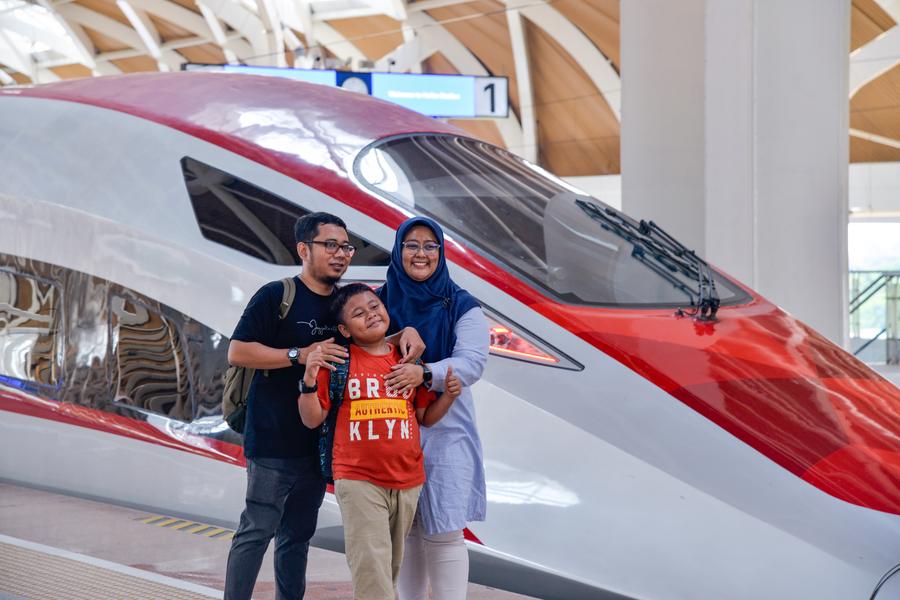
Passengers pose for photos with a high-speed electrical multiple unit (EMU) train of the Jakarta-Bandung high-speed railway on the platform of Halim Station in Jakarta, Indonesia, April 17, 2024. (Xinhua/Xu Qin)
Xi first proposed the initiative of the Silk Road Economic Belt, an essential component of the Belt and Road Initiative (BRI), in September 2013 in Kazakhstan.
So far, China has signed BRI cooperation agreements with more than 150 countries and over 30 international organizations.
International observers have lauded President Xi's vision of building a community with a shared future for humanity. They say the initiatives proposed by China, including the BRI, the Global Development Initiative, the Global Security Initiative, and the Global Civilization Initiative, have reflected China's wisdom in addressing global challenges and its blueprint for advancing human civilization.
Former Ecuadorian President Guillermo Lasso noted that by proposing the initiatives, China has demonstrated its role as a responsible major country and provided inspiration for countries to engage in dialogue on an equal footing and achieve peace and development.
Koh King Kee, president of the Center for New Inclusive Asia of Malaysia, offered a critical perspective on the post-World War II global governance system, which he argued was established and dominated by the West to safeguard its own interests. Koh said nations have been compelled to align with Western directives or risk being seen as adversaries.
In contrast, Koh highlighted China's vision of building a community with a shared future for mankind as an inclusive alternative.
Koh said this concept transcends national boundaries and addresses the international system from a universal human perspective.

